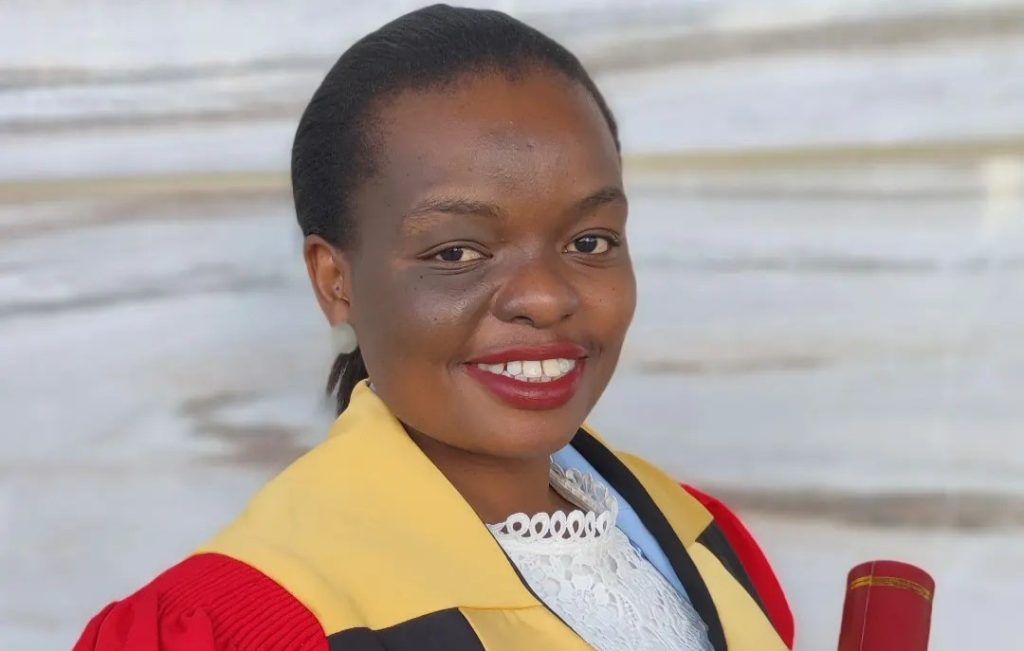Sithembile Chimaliro: The first female neurosurgeon in Malawi
In a field where accuracy, expertise and unwavering dedication are requirements, Sithembile Chimaliro’s journey to becoming the first female neurosurgeon is nothing short of remarkable.
Her story is a testament to resilience, passion and the pursuit of excellence against all odds.

After graduating from a medical school in 2014, she finished her internship in 2016.
Sithembire later worked as a general practitioner at Daeyang Luke Hospital for a year before enrolling in Queen Elizabeth Central Hospital’s residency programme.
Recently, she got her qualification as a neurosurgeon from the College of Surgeons of East, Central and Southern Africa.
The doctor also has a master’s degree in surgical sciences from the University of Edinburgh.
Sithembile describes a neurosurgeon as a specialisation in the diagnosis and surgical treatment of conditions that affect the nervous system, including the brain, spinal cord and nerves.
“I should confess that being the first female neurosurgeon is a huge accomplishment for me and my country. I’m thrilled about the opportunity to help Malawi’s neurosurgery field grow and enhance patients’ care.
“I am grateful to the people who helped and encouraged me, including my family, friends, mentors and the medical community. I have a strong desire to enhance my patients’ quality of life,” she said.
Sithembile also alluded to challenges she faced along her journey.
The biggest obstacle, according to the neurosurgeon, was a lack of human resource.
She noted that there are few professionals in surgery, without many trainees in the training programme either. Sithembile also said managing many patients with an already scarce labour, presented additional difficulties— making both work and education difficult at times.
“It was challenging to balance long working hours, study hours, the emotional toll of dealing with critical cases, family and personal commitments. But resilience, determination and ability to adapt were crucial factors in navigating these challenges. Having very supportive friends and family members was also a vital tool in coping,” she said.
The doctor believes her experiences prepared her to contribute meaningfully to the field of neurosurgery in Malawi.
Her significant achievement was having a manuscript published in a peer-reviewed journal with the title Mortality and complications; 1 year after treatment of hydrocephalus with endoscopic third ventriculostomy and ventriculoperitoneal shunt in children at Queen Elizabeth Central Hospital, Malawi.
“This research was important to our hospital since it altered one of the ways we care for our patients that is evidence based and cost-effective,” she said.
Sithembire said becoming a doctor requires intellectual and emotional commitment.
It involves several years of education, dedication and continuous learning.
“In the end, it’s a fulfilling career that offers intellectual stimulation and the opportunity to positively affect and enhance the lives of patients,” said the doctor.
According to her, there are six neurosurgeons in the country.
She added that neurosurgical care in Malawi faces challenges, but also shows promise for improvement.
Some of the challenges, include limited resources and specialised personnel.
“There’s a shortage of neurosurgical centres and trained neurosurgeons, leading to restricted access to specialised care, particularly in rural areas,” she said.
Her vision is to advance neurosurgery through research and innovation.
The doctor looks forward to local research initiatives and innovation in neurosurgery, potentially leading to solutions tailored to Malawi’s specific healthcare challenges.
Sithembile noted that strengthening partnerships with international medical organisations, universities and non-governmental organisations can facilitate knowledge exchange, donations of equipment and expertise sharing.
Among her responsibilities, she will assess and diagnose patients with neurosurgical conditions, formulate treatment plans and monitor their progress.
Sithembile believes her achievements serve as an example that anyone can achieve success with determination and hard work to both girls and boys.
She sends a message to girls who want to excel in academics and, of course, attain her role one day that they should believe in themselves.
“Your passion for learning and pursuit of knowledge are powerful tools that will shape your future and the world around you. Embrace your curiosity, feed your hunger for learning and never let anyone dim the brightness of your aspirations.
“I can’t think of one specific instance that helped shape who I am now. My father is a driven and hardworking individual. I inherited these traits from him and he was my inspiration. I guess that’s what made me become who I am today,” said the neurosurgeon.
She is indebted to her consultant, Professor Patrick Kamalo.
Sithembile said It was not an easy feat for Kamalo to be the only neurosurgeon in the country for almost a decade, but he overcame the difficulties.
She said he taught her the value of perseverance, hard work, prioritising her patients, standing up for them and making the most of the resources at hand.
“I’ve discovered how crucial it is to form solid partnerships that will ultimately help patients. Throughout my training, he encouraged me to be the best version of myself and supported me,” she said.
Sithembile began her primary education at Bambino Primary School and completed it at Bishop Mackenzie International School.
She later attended Kamuzu Academy where she first developed a liking for science.
In 2009, she enrolled at the Kamuzu University of Health Sciences.
In her free time, she enjoys trying out various cuisines and exploring new restaurants.
She also loves exercising and spending time with friends and family.






One Comment